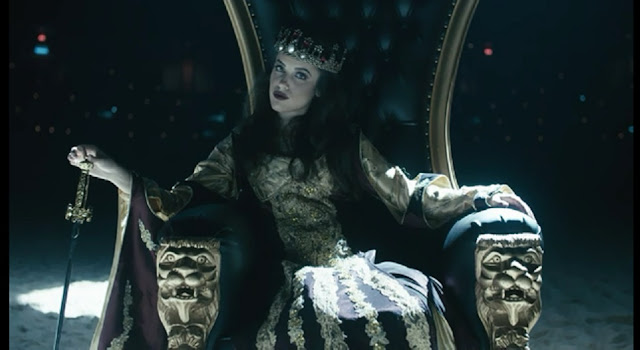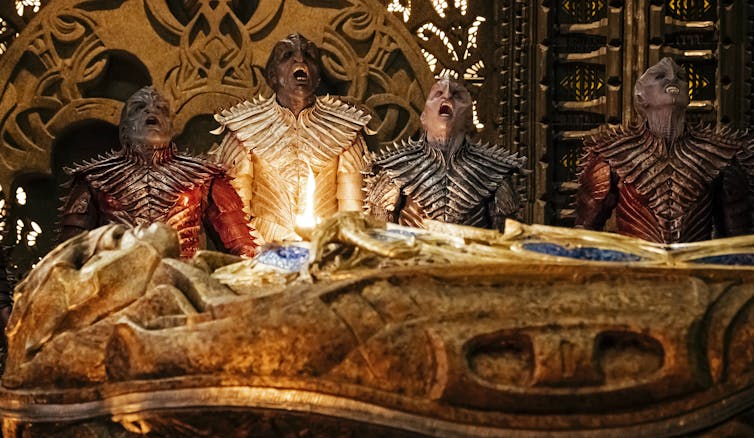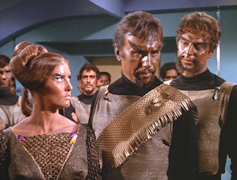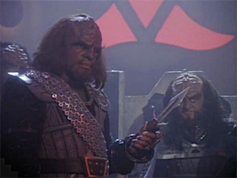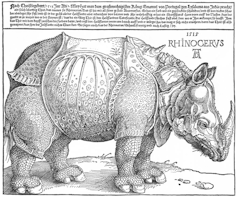
John Carpenter’s celebrated 1982 film The Thing is a science fiction classic. Although not an initial commercial success, it has achieved cult status and traditionally is screened (with its 1951 and 2011 counterparts) on the first full night of winter by crews staying at the Scott-Amundsen Base in Antarctica. It may seem a strange choice at first, yet the links between the polar regions and science fiction are strong.
From the pursuit by Mary Shelley’s Frankenstein of his creation into the frozen north, to Ripley’s fruitless call to Antarctica traffic control in Alien, writers have used the remoteness and novelty of the poles to enhance the menace and drama of their work. Carpenter capitalises on the dark polar nights and the claustrophobic confines of an Antarctic base to ratchet up the tension and paranoia as an alien infiltrates the outpost.
Inspired by John Campbell’s 1938 novella, Who Goes There?, The Thing follows the crew of an Antarctic base who discover an alien life form that can assimilate and perfectly mimic the appearance of other organisms. Operating at the cellular level, the alien tissue invades by gradually supplanting the original cells until what remains is an exact copy of the now consumed host.
The station personnel fight a desperate battle against the invader, devising a technique for testing blood samples for infection and struggling against the distrust that grows up in the group when they realise its ability to copy and replace their colleagues.
The eponymous alien constitutes an iconic Other. It defies description and therefore order. Having no fixed form other than the organisms it assimilates, it morphs – like a deceitful trickster god – into different shapes. Sometimes that shape is an incomplete transition phase, a chaotic mismatch of biological structures that affronts the logical processes of evolution (in one famous shot we see a detached human head that becomes mobile by growing arthropod legs). The assimilation process both frightens and disgusts, and the subversion of the base personnel’s own bodies into instruments of human destruction adds an extra touch of terror to the whole invasion process.
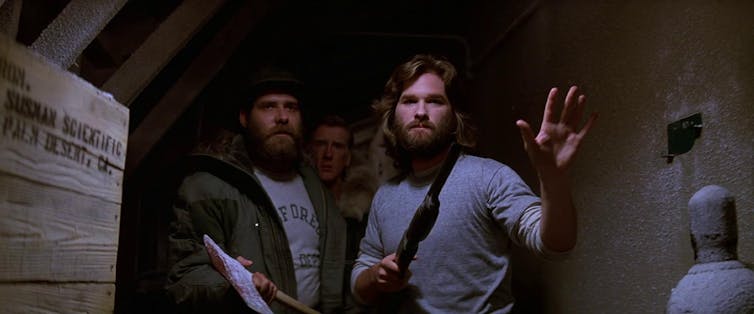
Why planet Earth?
But why would an alien come to our planet in the first place? The problem receives consideration in the work of Dr Lewis Dartnell, an astrobiologist who argues persuasively that Earth possesses no property or resource that an advanced civilisation would want to acquire. Reassuring though these arguments are, there remain nagging doubts.
The alien may be a survivor of a convict group condemned to exile on a distant planet. Recalling the First Fleet expedition to establish a colony in Australia in 1788, Commodore Arthur Phillip was under instruction as commander to maintain good relations with the indigenous people. Nonetheless, the effects of colonisation on the first nations living in Australia were devastating.
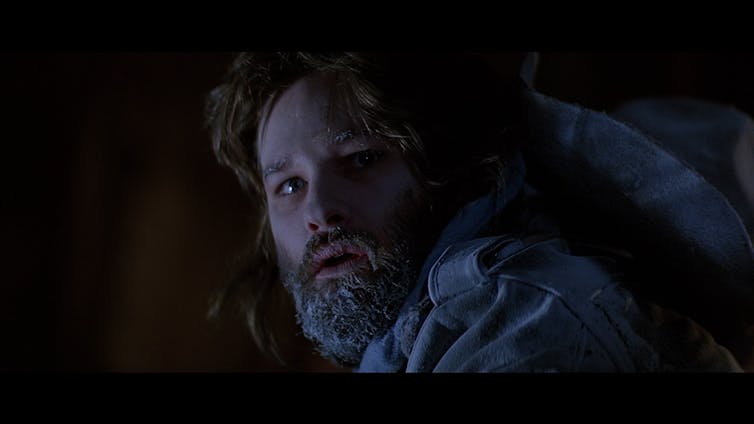
Stephen Hawking has made similar observations on the meeting of alien and Earth cultures and the lessons of history. And HG Wells famously made the same point in The War of the Worlds. They may be understating the case. In terms of existential risk, subjugation by an alien race may expose humanity to cruelty and misery that exceeds even annihilation.
The second reason why a seemingly illogical alien visit might not be comforting is the unexpected. The alien might simply have developed engine failure and made a forced landing. (Perhaps it was shot down). But in any event, improbability does not provide the same degree of comfort as impossibility, and that mathematical certainty eludes us.
Carpenter’s alien is an imaginative analogue of the many creatures in the natural world with the ability to change appearance for competitive advantage – from cephalopods that adapt skin cells to the colours of the seabed to insects that undergo the widespread process of metamorphosis.
About Today's Contributor:
John Ash, Associate at the Scott Polar Research Institute, University of Cambridge
This article was originally published on The Conversation.




